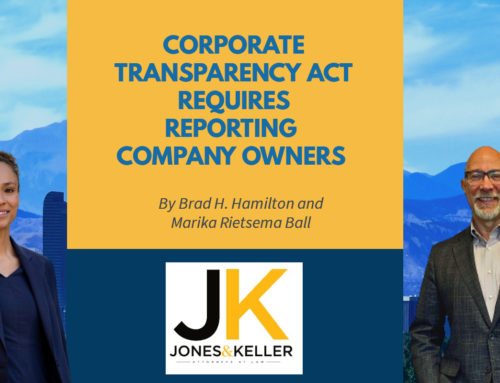On May 31, 2011 the Colorado Supreme Court reversed the Court of Appeals decision in Lucht’s Concrete Pumping, Inc. v. Horner. As we reported last year, the Colorado Court of Appeals ruled that continued employment is not sufficient consideration to support a non-compete agreement, invalidating a common business practice. In 2001, Lucht’s Concrete Pumping hired Tracy Horner as its “mountain division manager”, to handle sales and marketing for an expansion into Summit County. Horner did not sign a non-compete agreement when he was hired, but was asked by the Company to sign one in 2003. This is a common practice; at some stage in its life a company realizes it should have non-compete agreements with its key management and executive employees, and asks them to sign a non-competition agreement. If they do not, they can be fired, and companies and their lawyers have historically assumed that continued employment is sufficient consideration for a binding non-competition agreement.
A few years later, Horner quit and went to work for a competitor, and Lucht’s sought to enforce its non-competition agreement. The case ended up at the Colorado Court of Appeals, who turned common practice on its head by holding that Horner was not bound by the non-compete agreement he signed with Lucht’s, because he was already employed, his continued employment was “nothing more than he was already promised”, and Lucht’s did not pay him anything for the obligation not to compete.
The Colorado Supreme Court reversed the Court of Appeals, holding that:
“Because an employer may terminate an at-will employee at any time during the employment relationship as a matter of right, its forbearance from terminating that employee is the forbearance of a legal right. As such, we find that such forbearance constitutes adequate consideration to support a noncompetition agreement with an existing at-will employee.”
Of course, each agreement not to compete in Colorado must still satisfy both
(1) the requirements of C.R.S. § 8-2-113, which makes non-compete agreements void except
- (a) in connection with the sale of a business,
- to preserve trade secrets,
- to recover expenses of educating the employee, and
- as applicable to executives, management, officers and their professional staff; and
(2) the common law requirements that the scope of the covenant not to compete be reasonable in both duration and geographic area.
For the last year we have been advising clients that new non-compete agreements with existing eligible employees should only be signed in connection with a bonus, raise or other tangible consideration. However, in light of the Supreme Court’s decision in Lucht’s Concrete v. Horner, employers may now return to the common practice of requiring eligible employees to sign non-compete agreements in due course.




